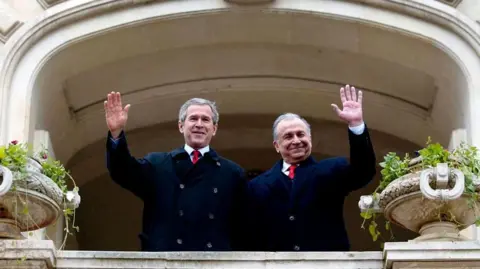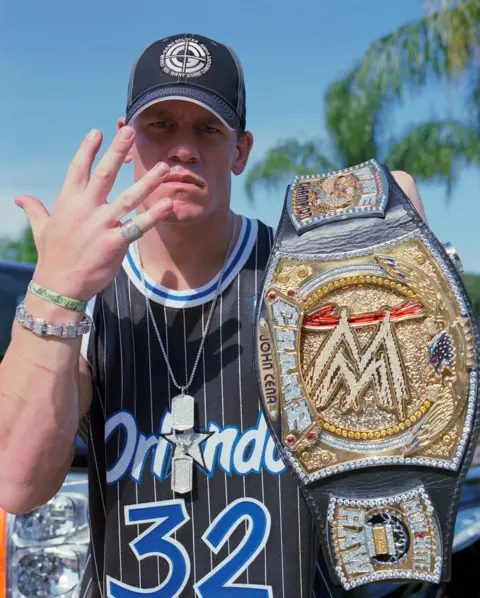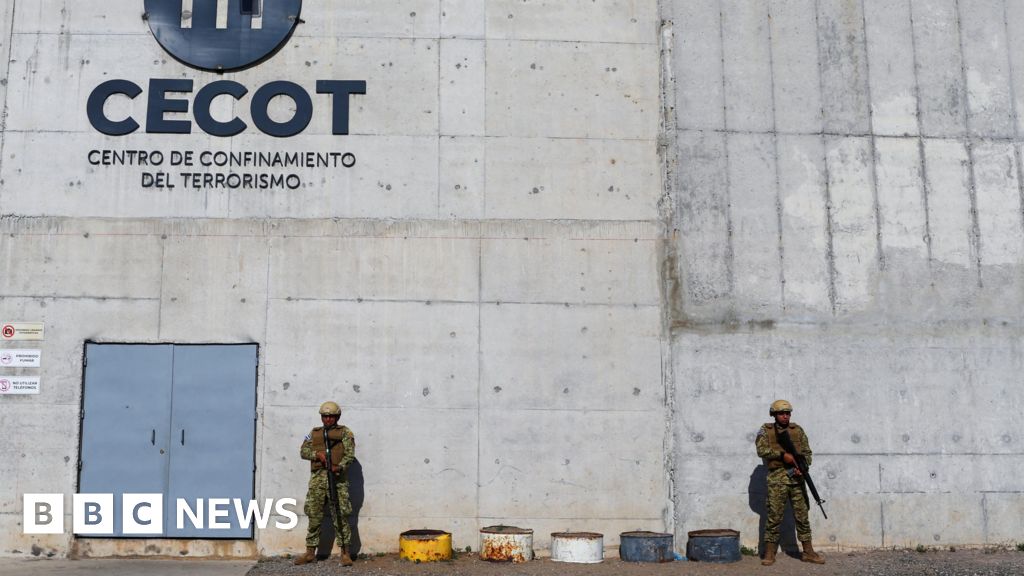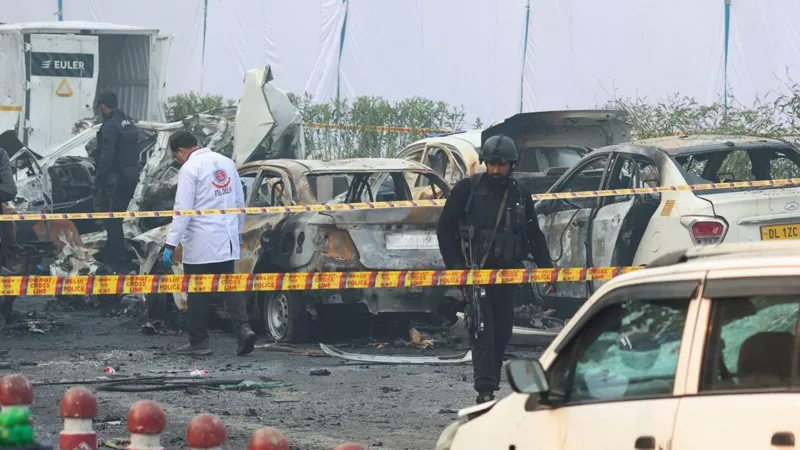BBC News in Bucharest
BBC News
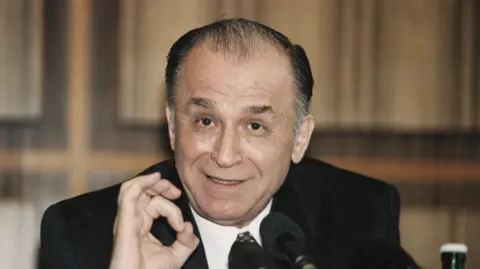 Getty Images
Getty ImagesFormer Romanian President Ion Iliescu, who presided over the country’s chaotic transition from communism to democracy, has died aged 95.
Iliescu had been diagnosed with lung cancer and hospitalised in early June in Romania’s capital, Bucharest.
“It is with deep regret that the government announces the passing of the former President of Romania, Mr Ion Iliescu,” a government statement said.
Iliescu was Romania’s first freely elected president, and served twice, between 1990-1996 and 2000-2004. He was accused of crimes against humanity over the violent revolt that toppled Romania’s communist regime in 1989, but always denied wrongdoing.
Born in 1930, in the southern city of Oltenita, Iliescu studied engineering in Russia, and later returned to Romania, where he joined the Communist Party.
He left politics in 1980 but re-emerged nine years later, during the revolution.
Following his election as president in 1990 with the Social Democratic Party, he was re-elected for a four-year term but then defeated in 1996.
He returned to power in 2000 for a third and final term, during which Romania joined Nato and launched its bid for EU membership.
Iliescu had largely withdrawn from public life in recent years, during which he faced charges of crimes against humanity but was never convicted.
Prosecutors in 2018 formally indicted Iliescu over his role in the 1989 revolution, during which he rose to power.
They alleged that Iliescu – who took control of the military during the revolt – had failed to prevent “numerous situations” where more than 860 people were needlessly killed. He was also accused of spreading misinformation through the media that caused panic.
The charges were ultimately dropped.
In a separate case, he was also charged over his role in calling in miners to crush student protests after his election in 1990.
Several people died and around 1,000 others were wounded in the bloody crackdown, which became known as the Mineriad and drew widespread international condemnation. That case was also dropped.
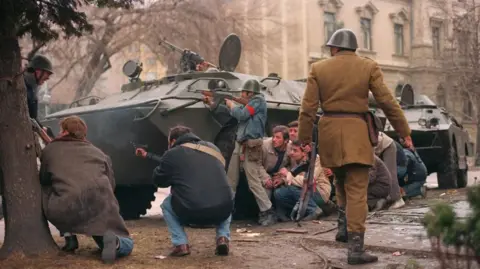 AFP via Getty Images
AFP via Getty ImagesIliescu’s death on Tuesday prompted his political allies and rivals to reflect on the complex and often contentious legacy he leaves behind.
Romania’s current President Nicusor Dan said that “history will judge” Iliescu, whom he called “the central character of the 90s transition”.
“It is our responsibility to clarify the major unresolved cases of that era, in order to move forward with full awareness,” Dan added, ending his message with “may God forgive him”.
Former Romanian Prime Minister Marcel Ciolacu, said the country had lost “one of the most influential personalities in its recent history”.
“Ion Iliescu, an emblematic leader of Romanian social democracy, was a defining figure in our country’s transition to democratic and European values after the 1989 Revolution.”
Sorin Grindeanu, the current leader of the Social Democratic Party (PSD), said that Iliescu “remains the social-democratic leader who fundamentally shaped the party’s development – a politician who showed deep empathy for those in difficulty”.
“Regardless of divergent views, his contribution to Romania’s transition to democracy remains part of our collective memory.”
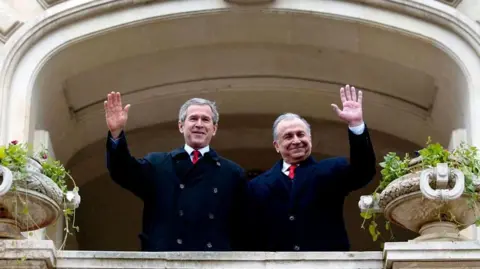 AFP via Getty Images
AFP via Getty ImagesIliescu’s health had declined in recent years. Prior to his latest hospitalisation, he had been receiving regular medical check-ups at Elias Hospital in Bucharest.
In 2019, he underwent surgery for pericardial effusion – a condition affecting the heart.
He had no children and is survived by his wife, Nina Serbanescu. His state funeral will take place over two days, on 6 and 7 August.
During this, his body will lie in state in Bucharest so the public can pay their respects. A military funeral service will then be held for him at the Ghencea Military Cemetery.
